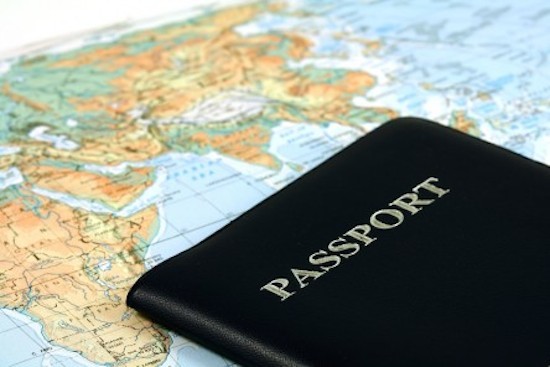Does the fact that you don’t have a visa constitute an issue to your travel plans? Cheer up, there’s good news. Do you know there are countries Zambians can visit without applying for a visa before the trip? Zambian passport holders can visit a select number of locations visa-free, or visa upon arrival. Some of the countries include several African nations like South Africa, Kenya and Botswana. Others include Malaysia, Cayman Islands, parts of South America as well as the Philippines. There are lots of other nations Zambian citizens can visit visa-free, you will normally get this information from a border tourism office.
See Also: How to Apply For US Visa From South Africa
70+ Countries Zambians can Visit Without Visa
1. Antigua and Barbuda – 1 Month
2. Anguilla – 3 Months
3. Barbados – 6 Months
4. Bermuda – 6 Months
5. Bahamas – 3 Months
6. Botswana – 90 Days
7. Belize – 1 Month
8. Cook Islands – 31 Days
9. Dominica – 21 Days
10. Ecuador – 90 Days
11. Fiji – 4 Months
12. Micronesia – 30 Days
13. Grenada – 3 Months
14. Gambia – 90 Days
15. Hong Kong – 3 Months
16. Haiti – 3 Months
17. Jamaica
18. Kenya – 3 Months
19. Kiribati
20. Saint Kitts and Nevis – 3 Months
21. Cayman Islands – 30 Days
22. Saint Lucia – 6 Weeks
23. Lesotho – 14 Days
24. Montserrat – 3 Months
25. Mauritius – 60 Days
26. Malawi – 90 Days
27. Malaysia – 2 Months
28. Mozambique – 30 Days
29. Namibia – 3 Months
30. Niue – 30 Days
31. Philippines – 21 Days
For more than 21 days up to 59 days, visa issued upon arrival.
32. Pakistan – 3 Months
33. Kosovo – 90 Days
34. Singapore – 30 Days
35. El Salvador
36. Swaziland – 30 Days
37. Turks and Caicos Islands – 30 Days
38. Trinidad and Tobago
39. Uganda – 6 Months
40. Saint Vincent and the Grenadines – 1 Months
41. The British Virgin Islands
42. Vanuatu – 30 Days
43. South Africa – 30 Days
44. Zimbabwe – 3 Months
The Republic of Zambia is a landlocked country in Southern Africa, neighbouring Tanzania to the north-east, Malawi to the east, the Democratic Republic of the Congo to the north, Mozambique, Zimbabwe, Botswana and Namibia to the south, and Angola to the west. The capital city of the country is Lusaka, located in the south-central part of the country. The population is concentrated mainly around Lusaka in the south and the Copperbelt Province to the northwest. English is the official language in Zambia, other notable languages are Bemba, Kaonda, Lozi, Lunda, Luvale, Nyanja, Tonga, and about 70 other indigenous languages
See Also: 84 Countries Zimbabweans Can Travel to Without Visa
Here are Countries that Require Visa Upon Arrival with Zambian Passport
46. Azerbaijan – 30 Days
47. Bangladesh – 90 Days
48. Belarus
49. Djibouti – 1 Months
50. Egypt – 15 Days – Valid for south Sinai resorts only.
51. Georgia
52. Iraq – Only available at Erbil international airport.
53. Jordan
54. Cambodia – 30 Days
55. Comoros
56. Laos – 30 Days
57. Madagascar – 90 Days
58. Macau
59. Maldives – 30 Days
60. Nicaragua
61. Nepal
62. Nauru
63. Palau – 30 Days
64. Seychelles – 1 Months
65. Sao Tome and Principe – 1 Months
Registration made by Airline
66. Togo – 7 Days
67. East Timor – 30 Days
68. Tuvalu – 1 Months
69. Tanzania
70. American Samoa – 60 Days
71. Cook Island – Visa not required, 31 days
72. Pitcairn Islands – 14 days visa-free
73. Palestine
74. Northern Cyprus
75. South Ossetia
See Also: 114 Countries South Africans Can Travel To Without A Visa
A diaspora report shows that Zambians are able to hold more than just their Zambian passport. Dual citizenship involves the simultaneous holding of more than one citizenship, with each inferring certain rights and responsibilities that would normally adhere to a citizen in each of the individual countries.
These rights and duties apply, in most cases, irrespective of the length of time that the person spends in that particular country or the extent of his or her political, economic or cultural ties.
Zambia governments are tolerant of dual citizenship among Zambians in other to harness the energy and financial resources of their geographically dispersed citizenry.
Migrant networks influence cross-national ties between homelands and host-lands. They are an economic and political resource, acting as the human face of their homeland. They engage in lobbying, pressuring host governments for different policies that benefit their homeland, and through engagement promote their homeland’s interests and become quasi-ambassadors.
Economically, allowing dual citizenship transforms a portion of the population from a financial burden to a resource. It also grants Zambians the freedom to travel, the ability to find a better place to settle and perhaps retire.
As for the international transient investors, there are many considerations. It may allow them to broaden their financial horizons through the expansion of investment activities and the heightened privacy that it may allow. Depending on individual circumstances, dual citizenship may also be extremely beneficial from a tax-planning perspective.
Note: Citizenship is a political term, drawing its importance from the economic, political and social rights and obligations that come with it.
